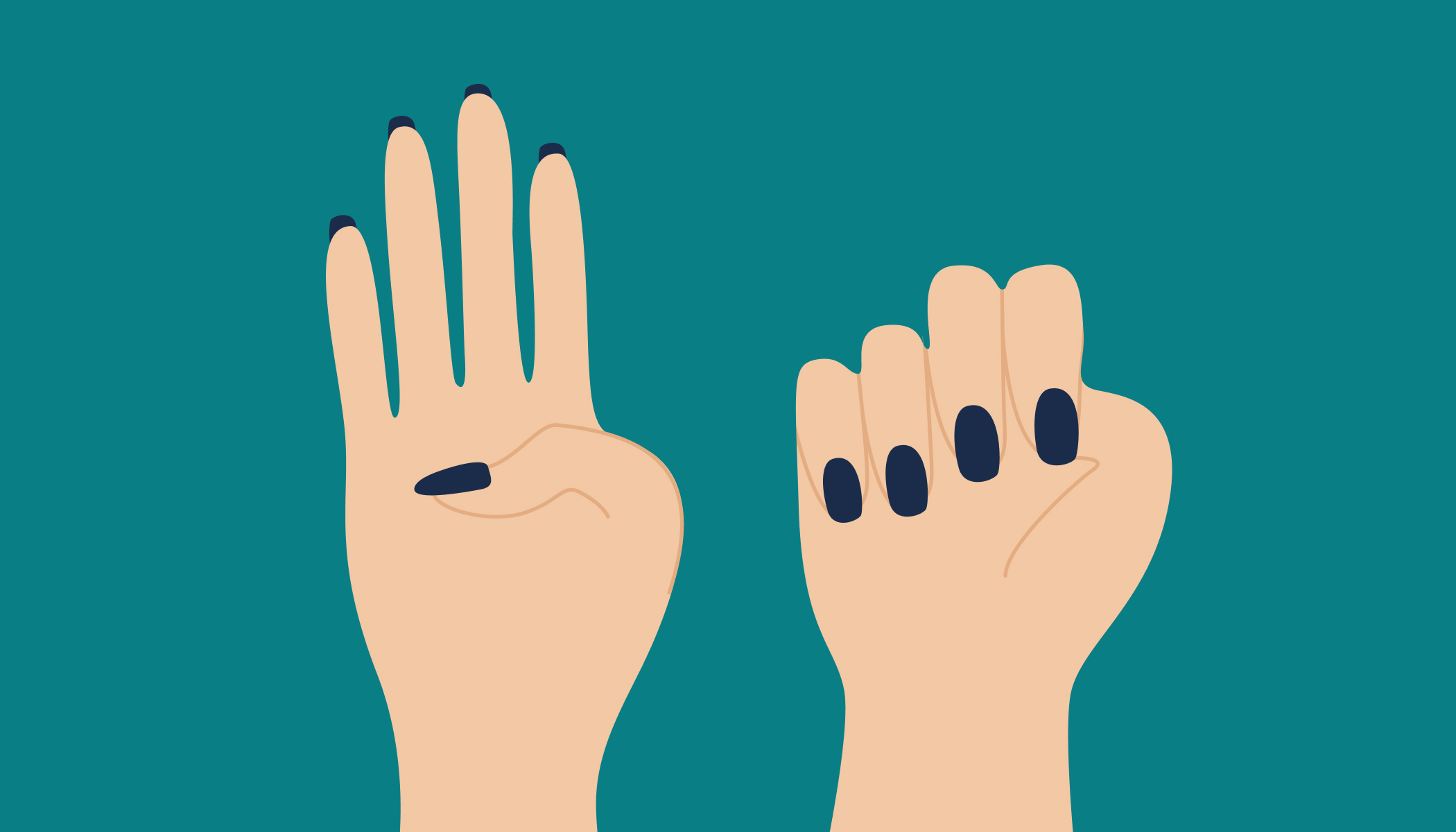Quick facts
- A fixation with food rules and overexercise can mask underlying anxiety
- People with orthorexia may become increasingly isolated
- Help is available in the form of treatments like Cognitive Behavioural Therapy (CBT)
It’s healthy to be healthy, right? Yes, and in these times when stress levels and uncertainty are high, it’s totally natural to try and control what we can, like our diets and exercise.
But it’s possible to become fixated with what you’re eating and your exercise levels to such an extent that other elements of your life suffer, like your relationships and need for rest and recovery — also essential to your wellbeing.
What is orthorexia?
Orthorexia nervosa was first defined in 1997 as ‘having a pathological obsession in pursuit of a healthy diet’. The word orthorexia is from the Greek orthos (correct) and orexia (appetite or nutrition).
‘Orthorexia nervosa is a disorder where you become obsessed and fixated with healthy eating,’ says Madeleine Gauffin, Licensed Psychologist and Psychotherapist at Livi. Although it overlaps with eating disorders, it’s not yet recognised as an eating disorder in its own right in the DSM-5 (Diagnostic and Statistical Manual of Mental Disorders), she explains, though it is increasingly recognised in scientific literature.
How is it different from other eating disorders?
‘There’s a fine line between anorexia and orthorexia,’ Gauffin says. ‘The goals might be different, but the mindset is similar — there is a compulsion around food that simply isn’t healthy.’
Anorexia nervosa and bulimia are most often about a preoccupation with weight loss. Those with orthorexia, on the other hand, focus on the quality of food — though it’s likely that weight will play a part too.
This may develop into ritualised patterns of eating — for example, spending an excessive amount of time thinking about, sourcing and preparing food and a rigid avoidance of foods they believe to be unhealthy or impure.
Many people with orthorexia also become obsessed with keeping fit. So, exercising compulsively becomes just as important as eating the right foods. In a recent review it was found that there’s often a correlation between orthorexia and exercise addiction.
‘For most people who eat healthily or exercise regularly, it’s fine to occasionally have some cake or a glass of wine, or skip a workout,’ says Gauffin. ‘But for people with orthorexia, any break in their regime makes them anxious. They’re obsessive about eating certain foods, for example vegan or gluten-free, and avoiding others, like refined sugars.’
What are the signs and symptoms of orthorexia to look for?
Orthorexia can be hard to spot — not only in others, but also in yourself — as it’s easy to justify under the umbrella of a healthy lifestyle. Giving up entire food groups without advice from a doctor or other qualified profession can be a particularly insidious sign.
Here are some more signs of orthorexia:
- Spending so much time thinking about, choosing and preparing healthy food that it interferes with other areas of life like family, relationships, creativity or work
- Feeling anxious, guilty, ashamed, impure or unclean after eating any food considered unhealthy
- Judging others who eat foods regarded as unhealthy
- Being excessively dependent on food and exercise choices for a personal sense of peace or happiness
- Being unable to relax around food, even on special occasions
- Steadily eliminating more and more foods whilst repeatedly adding to a rigid list of eating and exercise rules
- Following a healthy eating regime that’s caused more weight loss than is healthy, or resulted in other signs of malnutrition like hair loss, loss of menstruation or skin problems
Am I at risk of developing orthorexia?
‘People you would describe as highly functioning, super-ambitious, perfectionist, disciplined, type-A personalities are most at risk,’ says Gauffin. ‘On the outside they appear competent and in control, but there’s nearly always an underlying feeling of not being good enough.’
Orthorexics believe that they can only be loved if they’re perfect, and they equate this with looking and being healthy, Gauffin explains. ‘This often stems from childhood when they were expected to do well at school and in sport, and later to get the right job. The subliminal message they got was that you have to be successful to be loved.
‘Life events like bereavement or divorce can also trigger orthorexia, with people using a healthy living focus as a way of coping with emotional pain to the point where it becomes obsession,’ says Gauffin.
Is it really that harmful to be obsessed with healthy eating?
‘For one, it can lead to nutritional deficiencies and related health problems,’ says Gauffin.
But orthorexia can also exacerbate — sometimes even hide — psychological problems. ‘People who develop orthorexia tend to be highly anxious people who use an obsession with food and exercise as a way of blocking out their anxiety. That helps them stay in control of their emotions.’
Such mental health struggles can often become vicious cycles, Gauffin asserts. ‘The more time someone spends fixated on obsessively sticking to their rigid food and exercise rules, the more they withdraw into their own world, spending less time socialising and doing other activities.
‘This can lead to feelings of loneliness and disconnection from family and friends. After a while they find it increasingly hard to step out of their isolation and this makes their anxiety worse.’
What help is available for orthorexia?
The problem of orthorexia often only emerges by talking about other issues. ‘Most people who seek help usually do so for some other reason such as anxiety, depression, sleep problems, or a relationship break-up,’ says Gauffin.
What’s more, people with this disorder have often lost sight of just how much they’re missing out on in life, says Gauffin.
‘So, I might ask them things like – “How alive do you feel? How much freedom do you have?” My aim is to gently help them realise that they don’t have very much freedom. When all your time is spent obsessing over and being controlling about food and exercise, you end up living in a very small box.
‘Therapy can help someone take small, gradual steps out of that box, and realise what they’re missing out on by hiding in their high-achieving prison. The first step to overcoming orthorexia is to recognise there is a problem.’
If you think you may have orthorexia, Cognitive Behavioural Therapy (CBT) can be useful in helping to change the thoughts and behaviours that are leading to your obsession with food and exercise.
Psychodynamic therapy, on the other hand, can help you explore and work through any emotional issues underlying the condition.
A Livi GP can help you determine whether you need help with orthorexia or other eating-related issues.
This piece has been approved by Madeleine Gauffin, Licensed Psychologist and Psychotherapist at Livi.


